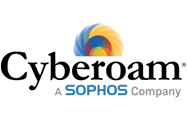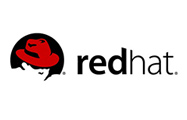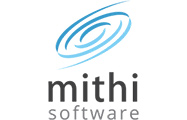Advantages of CCNA Certification Training Course
₹ 2,50,000+
Average Salary per Annum in India
$ 50,000
Average Salary per Annum in USA
15,00,000
Job Vacancies across the world
1,00,000
CCNAs in the world and the demand is increasing day by day
Why Choose CCNA Training and Certification Program In Ahmedabad?
CISCO products and services are used in India as well as globally by many organizations. CCNA is a certification to improve networking knowledge and skills. As a potential networking professional you can get great heights in your career. CCNA certification and training course in Ahmedabad give you an opportunity to make a career in the networking field.The CCNA certification is most in-demand in the IT industry. CCNA certified candidates have the right skill set for the position of different networking job roles. With Grras Solutions you will get a wonderful future as a CISCO expert. Our trainers are experts in this field and will help you achieve your goal with quality training and practical based training. This is the right start to building a career in the CCNA field.
Register NowAbout CCNA Certification Training Course
CCNA Course Overview
| Tracks | Regular track | Full day(Fastrack ) |
|---|---|---|
| Training Duration | 60 hours | 60 hours |
| Training Days | 30 days | 7 days |
Network professionals are in high demand. The HR professionals
filter them on basis of certification criteria. Certification becomes so
important that once you are certified you definitely get an added advantage
over those who have equivalent level experience this field. Certifications
actually speak up for you. With such certifications you achieve theoretical and
practical knowledge be it in Routing- Switching, Security, Wireless
Technologies.
Network Administrator :
You will have the opportunity to work with the company to create new solutions and customer offerings. You will handle to work to give Networking solutions for routing and switching.
Network Engineer:
The Network Engineer has the responsibility to set up, develop, and maintain computer networks in an organization, they are like a support system to the staff, client, and to their customers .
IT managers & IT Director :
Cisco Network Administrator after getting more experience and promotions are responsible for maintaining computer networks and problems which occur and their main work is to troubleshoot the problems occurred in the network of the organization.
CCNA Corporate Trainer:
The Cisco Network Trainer gives training to the students and corporate companies, work on the live projects and who choose to become a professional trainer in their career.

Enrollment For CCNA
Job Oriented Program
Our Job Oriented Program is one of a kind and a unique program that offers you 100% job guarantee right after completing the certification program and training with us. It is one of our renowned programs for producing job ready and experienced candidates with apt technical and soft skill knowledge demanded in the prompt evolving IT and digital industries.
Apply NowFREQUENTLY ASKED QUESTIONS
What will happen if I miss a class?
Nothing will happen if you miss a class because you will not be missing out on anything. Grras Solutions records all sessions for the benefit of the students and you will be receiving a copy of it too. Thus, you can study the recorded sessions and if you still face any doubts, you will have the chance to clear them in doubt-clearing sessions.
What is networking?
Networking is a process to develop and maintain network in the field for any organization. The professional works with an organization's technical team and its clients to install, configure, maintain, and fix all LAN/WAN and other equipment issues, ensuring efficient network functionality.
What are the types of networks in CCNA?
There are two types of networks- * ● Server-based network * ● Peer to peer network
What are the types of IP addresses in CCNA?
There are two types of IP addresses * ● Private IP * ● Public IP
Do I need knowledge of programming language for the CCNA training course?
You do not need knowledge of any programming language.
What are the training modes you provide in the CCNA training and certification course in Ahmedabad?
We provide online and offline training modes which you can choose according to your location and flexibility.
Is it hard to learn this course if I am not from the IT sector?
No, you don’t need any experience in the IT sector.
In how many days will the CCNA training course be completed?
If you choose regular track, this course will be completed in 30 days but if you choose the fast track route, it will take only seven days.
How can I enrol in the CCNA training course in Ahmedabad?
You can fill out the enrolment form then we will connect with you or you can contact us at e-mail ID [email protected].
Do you provide career support with the CCNA training course?
Yes, we provide lifetime career support with this course.
What are the job roles after completing the CCNA training course in Ahmedabad?
This course will open up many job opportunities. Some job roles are Network administrator, CCNA trainer, Network engineer, etc.
What is the average salary I can get after the CCNA training course in Ahmedabad?
The average salary is 2,50,000 per annum in India and $50,000 per annum in the USA.
What are the fees of the CCNA training course in Ahmedabad?
To know about the fee details, please contact us.
How many modules you will cover in this course?
CCNA training course has seventeen modules.























